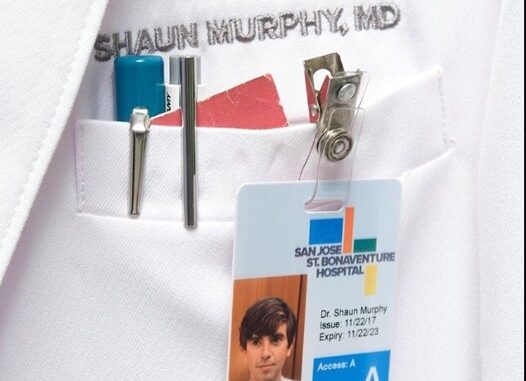
The Good Doctor premiered on ABC in 2017, it introduced a game-changing hero: Dr. Shaun Murphy, a surgical resident with autism, brought to life by Freddie Highmore. Adapted from a South Korean drama, this series ran for seven seasons, ending in 2024 after 126 episodes. Set in San Jose St. Bonaventure Hospital, it uses Shaun’s story to champion neurodiversity, dismantling stereotypes and advocating for inclusion.
Shaun’s autism fuels his genius—photographic memory and sharp detail orientation—but also his struggles. Colleagues misread his bluntness, and the hospital board hesitates to hire him, reflecting societal doubts about neurodivergent professionals. Dr. Aaron Glassman (Richard Schiff), his mentor, defends Shaun’s potential, framing the series’ core question: can difference be a strength? Shaun’s lifesaving insights prove it can, reshaping perceptions.

The show’s authenticity sets it apart. Shaun is a fully realized character, not a caricature. His romance with Lea Dilallo (Paige Spara) evolves into marriage and parenthood, with their son, Steven Aaron Murphy, and daughter, Maddie, marking his personal growth. Professionally, Shaun rises to Chief of Surgery and co-founds the Dr. Aaron Glassman Foundation for Neurodiversity in Medicine, a beacon of progress.
The ensemble cast amplifies the show’s message. Dr. Claire Browne (Antonia Thomas) and Dr. Jared Kalu (Chuku Modu) grow alongside Shaun, while departures like Dr. Neil Melendez (Nicholas Gonzalez) keep the story fresh. Modu’s season seven return as a regular thrills fans, grounding the series in its origins. The cast’s diversity—in race, gender, and perspective—mirrors the show’s inclusive ethos.
Medical cases, often rooted in real conditions, highlight Shaun’s unique approach. His ability to spot overlooked clues challenges colleagues to embrace diverse thinking, a lesson that resonates beyond medicine. Freddie Highmore’s nuanced performance anchors the series, blending vulnerability and strength to make Shaun relatable. The show also critiques workplace bias, urging viewers to value all minds.
The Good Doctor’s finale cements its legacy. Shaun’s foundation, co-run with Claire, symbolizes hope for a more inclusive future. Across 126 episodes, the series weaves a narrative of resilience and empathy, proving that neurodiversity is a superpower. Its impact endures, inspiring conversations about acceptance in workplaces and beyond. The Good Doctor isn’t just a drama; it’s a movement, urging us to see brilliance in every mind and to build a world where everyone belongs.
